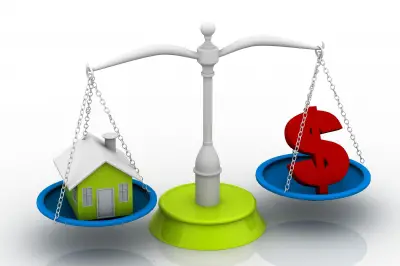For those who are self-employed or who run their own business, much of the mortgage application process is the same as it would be for anyone else, but some aspects are different. The main difference is that you will need to provide your own financial documentation and records. If you are considering applying for a mortgage soon, be sure to keep meticulous records. Of course, if you are self-employed, you are probably documenting all your information anyway. But just in case you’ve cut corners, the prospect of applying for a mortgage should give you added impetus to keep your records in perfect order. Here are the steps you need to take if you want to qualify for a mortgage while self-employed.
You Will Need Financial Records Going Back at Least Two Years.
Typically, lenders want to see at least two years of financial documentation. There are a few exceptions to this, however. If you have been self-employed for a year but prior to that were receiving education or training for the job, lenders might accept this. Another possible exception could be if you transitioned into self-employment from a similar type of work. Bear in mind that the lender will expect you to have steady work and regular cash flow, and ideally, you should be making more as a self-employed borrower than you were previously as someone else’s employee. Some types of loans, such as portfolio loans, may be easier to acquire if you have only been self-employed for a short time.
Be Aware That Lenders Are Only Looking at Taxable Income.
When prospective lenders look over your accounts, they will only be considering your taxable income when they assess your mortgage eligibility. This is significant because business owners and self-employed workers often qualify for — and take — quite a few deductions. What makes their income lower for tax purposes — thus, also makes it look lower to the lender. So you may be in a catch-22 situation where you have to figure out where you will end up saving more in the long run: taking your tax deductions for your business or showing higher income for your mortgage? Consider taking fewer deductions, if possible, prior to applying for your mortgage.
Prepare for Lenders to Assess Your Financial Health.
Besides your income records, lenders will also want information regarding a self-employed person’s credit, debts, and any existing assets. Check your credit report well before you begin preparing to apply for a loan so you can deal with any issues there. You can usually improve your credit score by paying off older debts and being sure to make all payments on time. It may also help to pay more than the minimum you owe per statement. Another debt reduction method is to focus on paying off higher-interest loans first.
Decide How Much You Can Afford on a Down Payment.
The more you can pay on your down payment, the smaller the loan you need. But that does not mean you should go all-in and pour most of your savings into this investment. It’s commonly believed that 20% of the loan is required as a down payment, but for many types of loans, such as VA or FHA loans, you are allowed to put down far less. However, you should assess whether it is prudent for you to do so since a smaller down payment can mean a longer loan period and thus more interest paid. Before the time comes to apply for a mortgage, try to set aside a little extra cash for the down payment, either by aiming for an increased income or by cutting out other expenses.
Yes, you may need to do a little extra work and strategizing to begin the application process, but for the most part, it will be straightforward and you will not be at a disadvantage.
You might also like:
- How to Minimize Complications When Reducing Your Mortgage
- The Downsides of Paying-off Your Mortgage Early
- 4 Things Home Buyers Shouldn’t Do During the Mortgage Process
- Rising Responsibility: 3 Signs You’re Ready to Take on a Mortgage
- How Pro Homeowners Pay off Their Mortgage Faster Than Their Neighbors
- Financial Figures: How to Budget for a Mortgage


